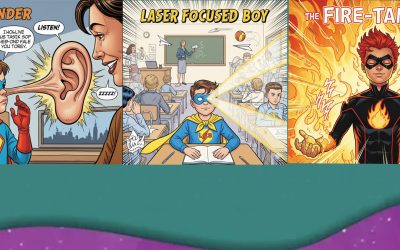Trusting God with Complex Problems
Human beings naturally desire justice. When we experience or witness wrongdoing, something within us craves resolution. We want to see things set right. This deep-seated desire reflects our creation in God’s image, as He is the ultimate source and standard of justice. Yet in our fallen world, justice often eludes us. Complex situations resist our attempts at simple solutions, and we find ourselves frustrated when problems don’t resolve the way we think they should.
This frustration stems partly from our tendency to reduce multifaceted problems to one-dimensional narratives. We see this in political discourse, social media debates, and even in our personal relationships. We categorize people as either victims or perpetrators, solutions as either right or wrong, and outcomes as either successes or failures. But human experience resists such simplification. As David Powlison noted, we are simultaneously saints, sinners, and sufferers, and the same is true of those with whom we have conflict.
When justice seems delayed or denied, how do we respond? What does it mean to trust God as the ultimate judge while still pursuing justice in our imperfect world? This article explores these questions through a biblical lens.
Our Tendency to Oversimplify
The Complexity of Human Experience
Scripture depicts human beings as remarkably complex. We are created in God’s image (Genesis 1:26-27), yet deeply fallen (Romans 3:23). We are capable of acts of profound goodness and horrific evil, often within the same day or even the same hour. The Bible never reduces people to one-dimensional characters. Even its heroes have significant flaws, and even its villains display moments of insight or virtue.
David Powlison articulates this complexity when he describes people as simultaneously saints, sufferers, and sinners:
“Our identity is who God says we are. We are saints, sufferers, and sinners. We are servants, prophets, royalty, ambassadors, warriors, and sons and daughters. We are also priests.” (Welch, “The Priority of the Priesthood for Human Identity”)
This multifaceted understanding of human identity complicates our pursuit of justice. If everyone involved in a conflict is both a sinner and a sufferer, determining culpability and appropriate restitution becomes far more challenging than we might initially assume.
The Danger of Reductionism
Despite this complexity, we’re drawn to simple narratives. We want clear-cut villains and heroes, unambiguous causes and solutions. This reductionist tendency appears throughout Scripture. Job’s friends insisted that his suffering must be a punishment for some hidden sin. The disciples asked Jesus about the blind man: “Rabbi, who sinned, this man or his parents, that he was born blind?” (John 9:2). In both cases, complex suffering was reduced to a simple formula: suffering equals punishment for sin.
Jesus rejected this reductionism: “Neither this man nor his parents sinned,” he replied, “but this happened so that the works of God might be displayed in him” (John 9:3). He pointed to a purpose beyond simple cause and effect, inviting his disciples to see a bigger picture than their simplistic moral reasoning allowed.
Similarly, many Christians today reduce complex relational conflicts to a matter of identifying who sinned. As Jay Adams acknowledged in his conversation with John Bettler:
“In 1970 I published Competent to Counsel, and I explicitly distinguished between the sin of Adam, which is the cause of all our problems, and individual sin… Yet to this day I get charged with the idea that I think all problems are a matter of personal sin!” (Powlison, “25 Years of Biblical Counseling”)
Biblical Perspectives on Justice
God’s Heart for Justice
Scripture consistently reveals God’s passion for justice. The prophet Micah declared that what God requires of us is “to do justice, and to love kindness, and to walk humbly with your God” (Micah 6:8). The psalmist affirms that “righteousness and justice are the foundation of [God’s] throne” (Psalm 97:2). Jesus himself pronounced blessings on “those who hunger and thirst for righteousness” (Matthew 5:6).
This divine commitment to justice should encourage us. It means our desire to see wrongs made right isn’t merely a human construct—it reflects God’s own character. When injustice grieves us, we share in God’s grief.
Human Limitations in Pursuing Justice
Yet Scripture also reveals the limitations of human justice. Our efforts are hampered by:
- Limited knowledge: Unlike God, we cannot see the heart (1 Samuel 16:7). We cannot fully understand motives, circumstances, or the complex factors that contribute to any situation.
- Personal bias: Self-interest often distorts our pursuit of justice. As James asks, “What causes fights and quarrels among you? Don’t they come from your desires that battle within you?” (James 4:1).
- Systemic limitations: Our justice systems, whether formal or informal, operate with incomplete information and imperfect procedures.
When we recognize these limitations, we gain both humility and perspective. We still pursue justice, but we do so with an awareness of our own fallibility.
When Justice Seems Delayed
The Reality of Delayed Justice
Scripture acknowledges that, from our perspective, justice often seems delayed. The wicked may prosper temporarily while the righteous suffer (Psalm 73:3-14). Jesus tells a parable specifically about a widow seeking justice from an unjust judge, emphasizing the need for persistence in prayer when justice seems delayed (Luke 18:1-8).
This delay can be deeply painful. The psalmist cries out, “How long, O LORD? Will you forget me forever?” (Psalm 13:1). Such lament is an honest expression of the anguish we feel when justice is deferred.
God’s Perspective on Time and Justice
Yet Scripture also invites us to consider God’s perspective on time and justice. Peter reminds us that “with the Lord a day is like a thousand years, and a thousand years are like a day” (2 Peter 3:8). What appears to us as delayed justice may look very different from God’s eternal viewpoint.
Moreover, what we sometimes perceive as divine inaction may actually be divine patience. Peter continues: “The Lord is not slow in keeping his promise, as some understand slowness. Instead, he is patient with you, not wanting anyone to perish, but everyone to come to repentance” (2 Peter 3:9).
This perspective doesn’t remove the pain of waiting for justice, but it does provide a framework for understanding the delay. God’s timeline is not our timeline, and His purposes may require processes that stretch beyond our limited vision.
Learning to Trust While Waiting
Active Trust in God’s Justice
Trusting God as the ultimate judge doesn’t mean passive resignation. Throughout Scripture, we see examples of active trust, people who continued to pursue justice while ultimately relying on God for vindication.
David, for example, repeatedly affirmed his trust in God’s justice while actively fleeing from Saul and later Absalom. He didn’t simply sit back and wait for God to act; he took prudent steps to protect himself while refusing to take justice into his own hands in ways that would violate God’s commands.
This balance between active pursuit of justice and ultimate trust in God’s judgment provides a model for us. We can advocate for justice, seek appropriate intervention, and work for systemic change while still recognizing that final justice belongs to God.
Practical Steps for Waiting Well
How do we wait well for justice? Scripture offers several guideposts:
- Honest lament: The psalms give us language to express our grief, anger, and frustration when justice seems delayed. Such honest communication with God is not a lack of faith but an expression of genuine relationship.
- Community support: God designed us to bear one another’s burdens (Galatians 6:2). When waiting for justice becomes painful, the presence and support of the faith community can provide strength and perspective.
- Remembering God’s faithfulness: Israel was repeatedly called to remember God’s past acts of deliverance and justice. Similarly, we can strengthen our faith by recalling how God has worked in the past, both in Scripture and in our own experience.
- Prayer for enemies: Jesus’ command to pray for those who persecute us (Matthew 5:44) takes on special significance when we’re waiting for justice. Such prayer doesn’t negate our desire for justice but aligns it with God’s redemptive purposes.
Conclusion
The tension between pursuing justice and trusting God will remain throughout our earthly lives. Complex problems rarely yield simple solutions, and our desire for a clear resolution will often frustrate us. Yet this tension itself can be spiritually formative, teaching us both persistence and patience.
As we navigate this tension, we can take comfort in knowing that God sees the full complexity of every situation. Nothing is hidden from His sight (Hebrews 4:13), and no injustice escapes His notice. The Judge of all the earth will do right (Genesis 18:25).
In the meantime, we continue to pray as Jesus taught us: “Your kingdom come, your will be done, on earth as it is in heaven” (Matthew 6:10). We work for justice now, however imperfectly, while ultimately trusting in the perfect justice that will characterize God’s kingdom in its fullness.
In the words of the prophet Habakkuk, even if justice seems to tarry, we wait for it, because it will surely come (Habakkuk 2:3). And in that waiting, we continue to “act justly, love mercy, and walk humbly with our God” (Micah 6:8).
How well do you wait for justice? Which of the four guideposts help you the most while you wait for God’s ultimate justice? Share your reflections in the comments below.



0 Comments